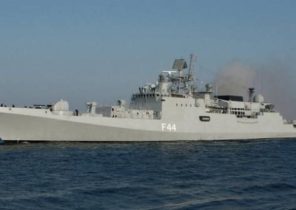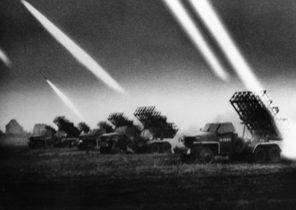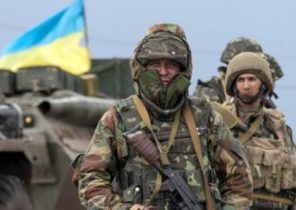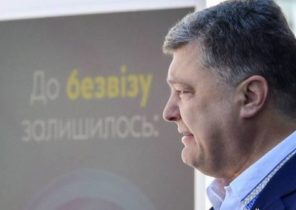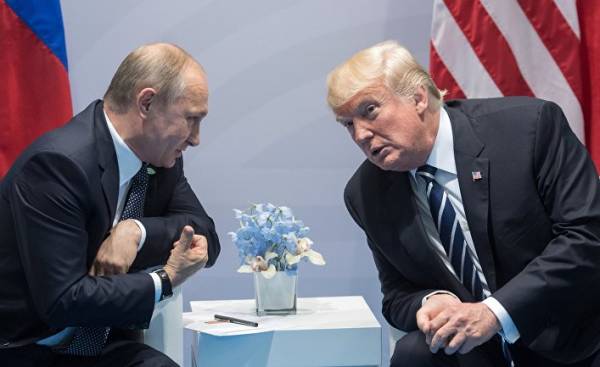
Let we are far removed from the ideological confrontations of the 1960s, Russia and the United States today re-employ strategies that once again return to the forefront of the bipolar nature of the international security system.
The world is far removed from the ideological conflicts of the 1960-ies, while Russia and the United States will implement in the XXI century, the strategy of pragmatism, opportunism, or even imperialism, once again returning to the forefront of the bipolar nature of the international security system.
The duality in the international arena began to be traced at the dawn of the XXI century with the termination of the ABM Treaty, a discussion of the strategic offensive reductions Treaty and the us project of deployment of missiles in Europe near the Russian borders. Today she can be seen with the naked eye.
The policy of confrontation between the two great powers becomes especially clear if you look through the prism of their actions in the middle East in 2015. The same applies to the deployment of missiles and missile defense systems in Europe and at its borders, which undermines the INF Treaty of 1987. All of this undermines the security architecture that patiently and with great difficulty were formed from 1967 to 2001.
USA vs Russia: the industrial and territorial policies
Clashes between Russia and the United States today are not ideological, cultural and religious character. They are a manifestation of the policy of self-assertion in the international arena or even hegemonic impulses in the energy sector (gas pipeline “Nord stream-2” or claims to gas resources in the Eastern Mediterranean).
Russia cuts out the lion’s share, trying to regain the lost pieces of the former Soviet Empire. It prefers tactics of small territorial and political steps. In 2008 she created on the periphery of Georgia’s two Autonomous but fully subordinate Republic, Abkhazia and South Ossetia, not weakening the pressure on the troubled Chechnya. In 2014 Russia won the Crimea, which was donated to the Kiev Ukrainians by Khrushchev in 1954. Subsequently, she has begun to undermine the fragile Ukraine support the likes of the two republics in Donetsk and Luhansk, hoping to return the mining and industrial center of the former USSR. Anyway, Russia immediately met with opposition from the US, which in 2017 has provided Ukraine with financial support in the amount of $ 150 million for the purchase of weapons.
USA, in turn, looked apathetic and confused by the terrorist attacks in September 2001. They did not dare to carry out an external operation from a fear to a new Vietnam. Anyway, they intervened in Libya to settle old scores with its leader. About realism in this case speech did not go, because nobody invited the country to replace any other political system. Moreover, the United States, along with Britain and France were directly involved in the collapse of Libya, which resulted in a strong growth of Maritime migration into Europe and terrorism in the Sahel. In the middle East — particularly in Iraq — the Americans prefer to act with caution, as they fear protracted operations like the one that began in 2003. They are limited to sending military advisers, and also a pinpoint and limited military support to prevent the involvement of the army.
Russia vs USA in Europe
The confrontation between the two powers (they are not super-powers in relation to those of China and India) continues in the military sphere. Anyway, everything is rather ostentatious and does not reflect the true military plans. The elements of American missile defense in Poland and Romania Russia responded with missiles “Iskander” in the Kaliningrad region, under the noses of the Baltic republics. The emergence of the Volgograd region parts with cruise missiles 9M729 followed by the scale of the operation “Atlantic determination” with the placement in Poland of 3 thousand American soldiers, 87 tanks, armored vehicles and helicopter gunships.
The confrontation between the two powers attracts new strategic tools such as medium-range missiles, which constituted a violation of the INF Treaty of 1987, which was a vital step in the reconciliation of the States of the Warsaw Pact and NATO. Both partners try to present themselves opponents, twisting inside “Strategy of conflict” by Thomas Schelling, who said that opponents of the cold war must necessarily become partners. In 2017, both players want to get a leading role in maintaining or destabilizing the peace in Europe, focusing on the strategy of military tension.
USA vs Russia in the middle East
Russia and the United States are indirect confrontation in the middle East political-military arena. All this is in some ways reminiscent of the war in Spain, where the Soviets supported the Republicans, and the fascists — nationalists. Both players have a similar strategy to stabilize Iraq and Syria with the elimination of terrorists, which are diverse from the terminological point of view, but always dangerous flags. They don’t want to abandon the strong points and strengthen them, as, for example, the Russian naval base in Tartus and air base in Syria Hamim. Americans are content with the maintenance of military agreements with countries of the Persian Gulf and Saudi Arabia.
Starting in September 2015, the Russian air force operation in Syria, without doubt, shifted the equilibrium to the side of the Syrian state. At the same time, the actions of the international coalition headed by the USA do not bring any results in terms of support for the insurgency, integrity of which is often questionable. Anyway, two key players have realized the importance of interaction in the air: in this regard, they signed a Memorandum, which, unfortunately, was declared insolvent by Russia in June 2017 after coalition strikes on Syrian troops (this further complicates the conflict).
Russia-US confrontation in Europe and the middle East, returning thus, in a bipolar system. However, the existence of this system will depend on new global players, China and India. In addition, they reduce the role of friendly and allied countries, NATO, the EU and the CIS. Those are pushed to the wayside in international negotiations in Geneva and Astana. Instead of wasting time in bloody confrontations abroad, the US and Russia ought to be the defenders of the world. While States have in the hands of different strengths. Economic power of the United States, and the revival of the military power of Russia. They need to establish cooperation in the field of economic development, settlement of military conflicts and restore peace.
The revival of the bipolar approach to strategy creates in Russia and the United States the illusion of power and control in a multipolar world that in fact they do not keep in the hands.
